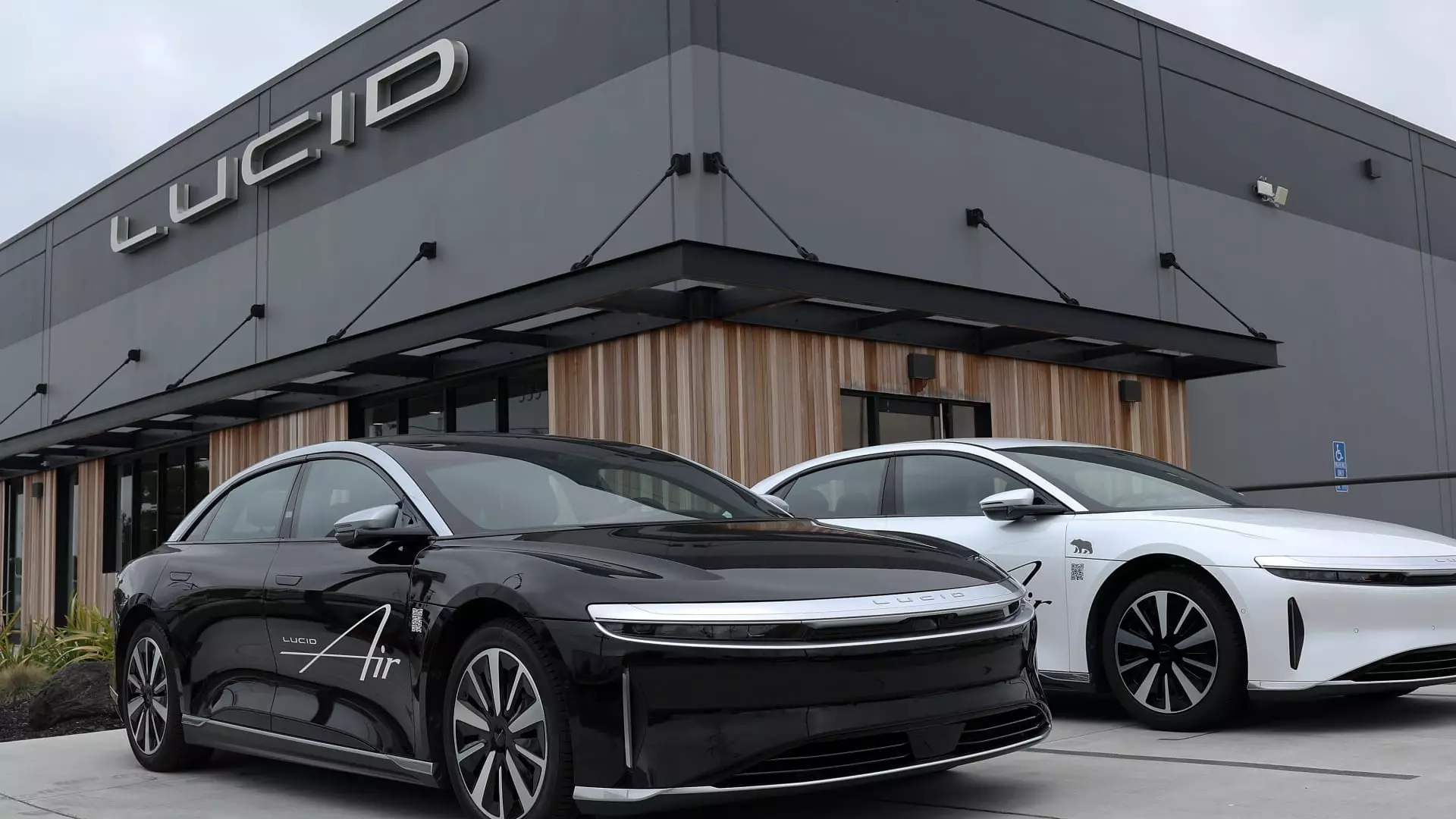The electric vehicle industry has experienced rapid evolution, and with it, companies like Lucid Group are navigating their own transformative journeys. Recently, Lucid announced the surprising departure of its CEO, Peter Rawlinson, who has stepped down to allow for a new vision as the company aims to ramp up its vehicle production capacity significantly. In his place, Marc Winterhoff, previously serving as the chief operating officer, has taken on the role of interim CEO. This leadership change marks a pivotal moment for Lucid, a company that has been synonymous with luxury EV innovation since its public debut through a Special Purpose Acquisition Company (SPAC) merger.
Rawlinson’s tenure at Lucid has spanned over a decade, where he has been instrumental in shaping the company’s strategy and technological advancements. Acknowledging his achievements, Rawlinson expressed pride in what has been accomplished during his time, indicating a commitment to staying involved in a new capacity as a technical advisor to the board’s chairman. The leadership transition may symbolize an evolution from Rawlinson’s hands-on approach to a more collaborative and strategic direction for the company.
Marc Winterhoff emphasized that Rawlinson’s resignation was a personal choice after years of dedicated service. Reflecting on the demands of the role, he noted the necessity of refining focus and sharing responsibilities moving forward. In a landscape marked by fierce competition and the pressing need for innovation, such a change can be viewed as a strategic maneuver to reinvigorate the company’s leadership dynamics and re-align goals with market realities.
Despite the unexpected nature of Rawlinson’s departure, it is indicative of the complex interplays that characterize the electric vehicle market. Stakeholders now look to Winterhoff, who joined Lucid with significant industry experience, to align the company’s workflows toward their ambitious production targets. The announcement aligns with a broader goal to double production to an impressive 20,000 vehicles within the year—a feat which requires decisive leadership and innovation.
The announcement of the leadership change coincides with Lucid’s financial results from the fourth quarter, which revealed a net loss of $636.9 million, encapsulating the challenges faced even as they pursue growth. As Lucid strives to ramp up production, the pressure mounts not only to enhance operational efficiency but also to ensure product delivery aligns with market expectations. The company reported fewer than 10,000 vehicle deliveries last year, indicating a stark contrast against their projected figures for 2025.
The anticipated introduction of the Gravity SUV represents an essential element of Lucid’s growth strategy. However, specifics regarding its contribution to the overall production target remain unclear, underscoring the uncertainty in the company’s operational roadmap. As Lucid seeks to transition into a higher production volume, a clear vision and execution strategy will be vital to achieving these ambitious goals.
In initial market reactions, Lucid’s shares experienced a slight uptick of around 8%, highlighting a degree of optimism from investors despite a broader trend of declining stock performance for the year. With a notable backing from Saudi Arabia’s Public Investment Fund, Lucid’s future remains intrinsically linked to the evolving dynamics of electric vehicle adoption and government support frameworks.
The company must navigate a slew of challenges, including market competition and economic shifts affecting consumer behavior towards EVs. As federal support for electric vehicles fluctuates, particularly in light of changing administrative priorities, Lucid’s ability to sustain investor confidence and consumer interest will be paramount.
The transition in leadership at Lucid Group encapsulates the complexities and challenges inherent in the fast-paced world of electric vehicles. As Marc Winterhoff steps in, the company prepares to embark on a crucial chapter focused on scaling operations to meet competitive demands. This transformation is not merely about increasing vehicle numbers but also represents a strategic recalibration aimed at ensuring long-term sustainability and growth. As Lucid navigates these changes, its capacity to innovate and adapt will be pivotal in determining its place in the future of the automotive industry.


Leave a Reply